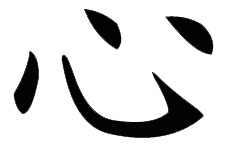
In the Beginning
I strove to say “Yes!” to religion. Religious belief was offered. To religion as belief I said, “No!”
To 'belief' as reason and evidenced-based best guess, I came to say “Yes!” Thus I came to say “Yes!” to science, which implies that I came to say “No!” to that which solemn pretenders/pundits merely believe to be science—to pseudoscience. The distinction can be trying, but one must endeavor to make it.
So too with 'religion' and 'pseudoreligion'. As with pseudoscience, the endeavor must be made to distinguish one from the other. Here too the distinction is obtainable for the price of an effort.
Where should we, those of us who would become ancestors, seek wisdom? What need we and our descendants (biological and cultural—genetic and memetic) know to live rightly upon this heaven that is Earth?
The wisdom of the East would seem the obvious place to start, but born of and in the East I turned curious eyes toward the West, the unknown, and was in youth allowed to go there, to gaze upon it. But the whole of the Asiatic world did not escape my attention. I sought to touch and be touched by its vastness without holiness.
At fifteen I began my study, at thirty I had some idea of where to stand and where not to. Such is the Way [perennial task] incumbent upon us all. Showing some ability, no effort was spared to educate me to serve the People and their Revolution. But, unnoticed, my only talent lay in not believing anything I was told. I smiled a lot, no one knew why, and so I was allowed to further my studies in the West, at le coeur, the very valve mitrale, of the Western Enlightenment. The course work seemed trifling, so I spent most of my time in the Great Library where my real education took form as I wandered every stack.
The basics soon became evident. The West had much to teach about thought, of how to think better, with the fruit of its effort being math, science and scholarship. The West, however, with perhaps a few individual exceptions, had nothing to teach about religion other than how to go stunningly astray.
Though in the West, the library was inclusive and I looked into what is called religion in the East. I studied inclusively, with perhaps a special interest in China's religious history, and came to feel the call of religious or existential inquiry. But I also did not neglect the affairs of the world.